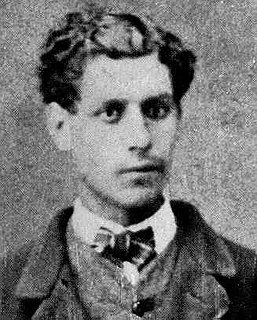A Quote by George S. Patton
The courageous man is the man who forces himself, in spite of his fear, to carry on.
Quote Topics
Related Quotes
Perhaps down in his heart Okonkwo was not a cruel man. But his whole life was dominated by fear, the fear of failure and of weakness. It was deeper and more intimate that the fear of evil and capricious gods and of magic, the fear of the forest, and of the forces of nature, malevolent, red in tooth and claw. Okonkwo’s fear was greater than these. It was not external but lay deep within himself.
Here and there awareness is growing that man, far from being the overlord of all creation, is himself part of nature, subject to the same cosmic forces that control all other life. Man's future welfare and probably even his survival depend upon his learning to live in harmony, rather than in combat, with these forces.
I believe that the unity of man as opposed to other living things derives from the fact that man is the conscious life of himself. Man is conscious of himself, of his future, which is
death, of his smallness, of his impotence; he is aware of others as others; man is in nature, subject to its laws even if he transcends it with his thought.
No technological achievements can mitigate the disappointment of modern man, his loneliness, his feeling of inferiority, and his fear of war, revolution and terror. Not only has our generation lost faith in Providence but also in man himself, in his institutions and often in those who are nearest to him.
There is no deception on the part of the woman, where a man bewilders himself: if he deludes his own wits, I can certainly acquit the women. Whatever man allows his mind to dwell upon the imprint his imagination has foolishly taken of women, is fanning the flames within himself -- and, since the woman knows nothing about it, she is not to blame. For if a man incites himself to drown, and will not restrain himself, it is not the water's fault.
The man who has given himself to his country loves it better; the man who has fought for his friend honors him more; the man who has labored for his community values more highly the interests he has sought to conserve; the man who has wrought and planned and endured for the accomplishment of God's plan in the world sees the greatness of it, the divinity and glory of it, and is himself more perfectly assimilated to it.
Magic enables man to carry out with confidence his important tasks, to maintain his poise and his mental integrity in fits of anger, in the throes of hate, of unrequited love, of despair and anxiety. The function of magic is to ritualize man's optimism, to enhance his faith in the victory of hope over fear. Magic expresses the greater value for man of confidence over doubt, of steadfastness over vacillation, of optimism over pessimism.
Before modern man can gain control over the forces that now threaten his very existence, he must resume possession of himself. This sets the chief mission for the city of the future: that of creating a visible regional and civic structure, designed to make man at home with his deeper self and his larger world, attached to images of human nature and love.
Man alone, during his brief existence on this earth, is free to examine, to know, to criticize, and to create. In this freedom lies his superiority over the forces that pervade his outward life. He is that unique organism in terms of matter and energy, space and time, which is urged to conscious purpose. Reason is his characteristic and indistinguishing principle. But man is only man -- and free -- when he considers himself as a total being in whom the unmediated whole of feeling and thought is not severed and who impugns any form of atomization as artificial, mischievous, and predatory.
It appears to Nietzsche that the modern age has produced for imitation three types of man ... First, Rousseau's man, the Titan who raises himself ... and in his need calls upon holy nature. Then Goethe's man ... a spectator of the world ... Third Schopenhauer's man ... voluntarily takes upon himself the pain of telling the truth.





































